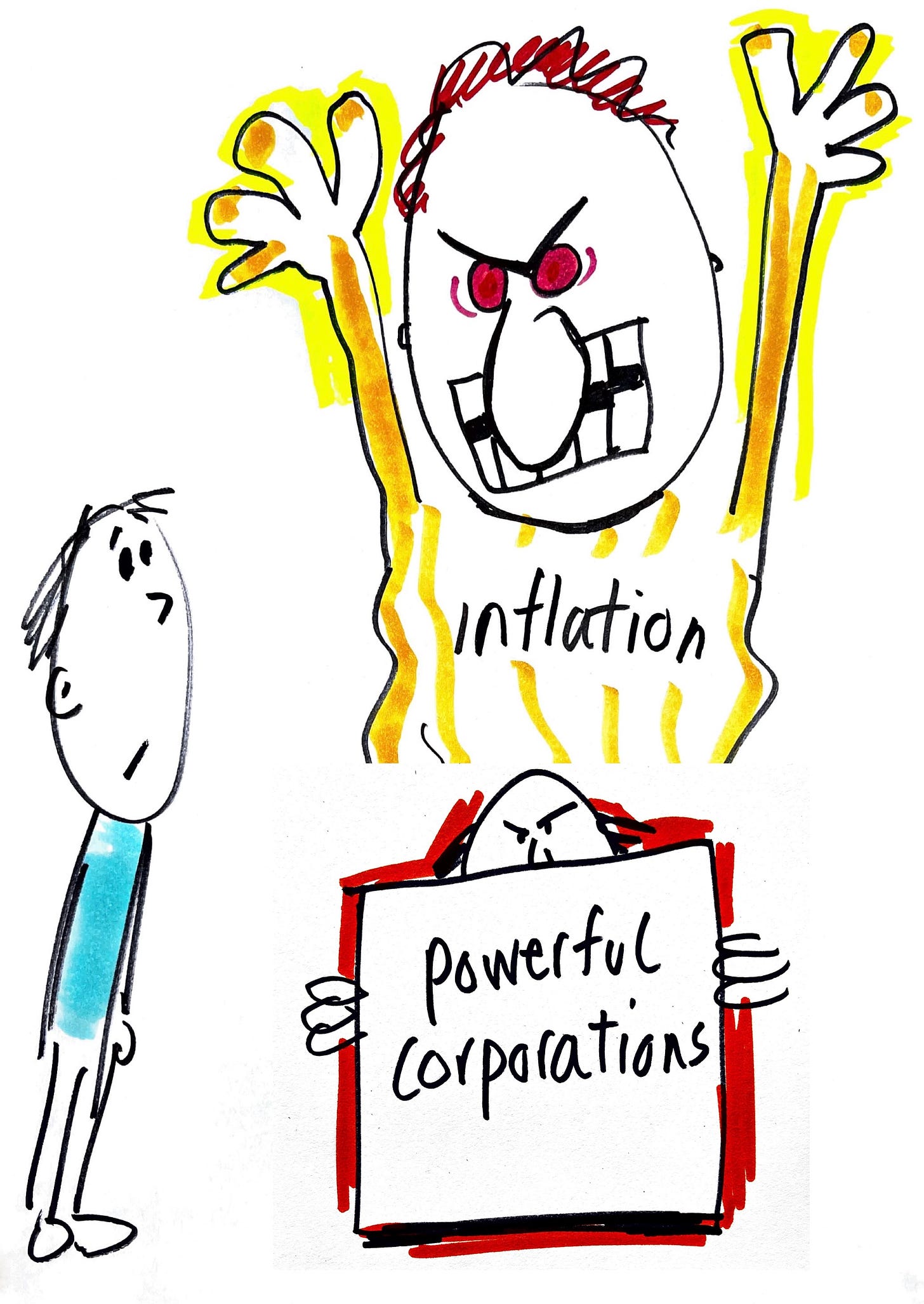So much economic news (with too much of it mis-reported) that I want to keep you apprised.
Following Thursday’s report by the Commerce Department that the U.S. economy had shrunk for the second quarter in a row, economists in and out of the White House have spent much of the last several days deconstructing the word “recession.”
Are we in one or not? The answer, technically, is no (the independent National Bureau of Economic Research in Cambridge, MA makes that call), but most Americans feel we’re in one because their paychecks have been shrinking. Employers have raised wages a bit, but the costs of energy, food, and much else have been rising faster.
Prices at the gas pump have drifted down somewhat in the last month but are still eye-popping (here in California, I’m paying over $6 a gallon).
But here’s the thing: Big Oil continues to make gigantic profits — and could easily lower prices at the pump if it wanted but doesn’t want to. Exxon just reported second-quarter profits of $17.9 billion. That’s more than three times what it earned a year ago. Chevron’s profit more than tripled to $11.6 billion.
The two giant American oil companies are not pouring their profits back into energy, green or otherwise. They’re buying back their shares of stock in order to reward investors and executives.
Price gouging continues to be the biggest under-reported economic story.
On Friday, Proctor & Gamble (maker of everything from Gillette razors to Tide detergent) reported another quarter of rising profits despite its increasing costs of raw materials and transportation. How did it manage this feat? By raising its prices even more.
Meanwhile, half of the recent rise in grocery prices is from beef, pork, and poultry. Just four large conglomerates control these markets, and they’ve been coordinating their price increases to score large profits -- here again, using “inflation” as an excuse.
Let me emphasize that if markets were competitive, companies would keep their prices down to prevent competitors from grabbing away customers. But they’re raising prices even as they rake in record profits. Big corporations are busily raising their prices because consumers have so little choice.
Corporations are using inflation as cover.
To be sure, inflation has broken out all over the world -- the consequence of pent-up demand from more than two years of pandemic and of limited supplies of everything from computer chips to wheat, due to difficulties getting the world economy up and running. Add in Putin’s war in Ukraine driving up world energy and food prices, and China’s lockdowns against COVID, and you get a perfect conflagration.
But corporate price gouging is making everything worse.
Instead of going after corporations, though, the U.S. government is going after working people. On Wednesday, America’s central bank raised interest rates by three-quarters of a percentage point, and signaled more rate increases to come, perhaps as soon as September. (This followed a quarter-point increase in March, another half a point in May, and three-quarters of a point in June.)
As a result, the living standards of nearly everyone who borrows money are already dropping. Because of the Fed's rate hikes, the average rate on credit card debt has reached 17.25 percent (up from 16.34 percent in March, before the Fed began raising interest rates). Rates on student loans, car loans, and mortgages are also rising.
If the Fed keeps raising interest rates to slow the economy — even if we avoid an official “recession” — most workers will fall even further behind.
How to put the onus on corporations instead of working people?
For starters, impose a temporary windfall profits tax on Big Oil, on giant sellers of consumer staples, and on Big Ag. This would reduce their incentive to engage in price gouging.
Bolder antitrust enforcement – even the threat to block mergers and break up giant companies – could also reduce their ardor to raise prices.
If Congress refuses to allow the government to use its bargaining power to reduce the prices of pharmaceuticals, Big Pharma is a good candidate for temporary price controls. (FDR controlled prices via executive order.)
Finally, higher taxes on the wealthy -- such as Democrats seem finally ready to enact -- will help dampen total demand, thereby dousing some of the inflation fire.
The Fed’s single tool of interest-rate increases hits working people rather than corporations responsible for most price increases (over and above the rising costs of global supplies). We need to fight rising prices, not working people.




This is simple common sense. I don't understand why it's so hard to implement (aside from the fact that corporations control our government).
There are no shortages of gas or other products. No gas station is posting, “Sorry, we’re out of gas”. America gets little from Russia. Enough with the supply chain baloney. The high prices are being caused by corporate greed and price controls are needed to lower the prices.